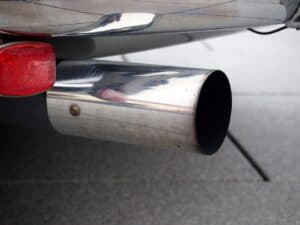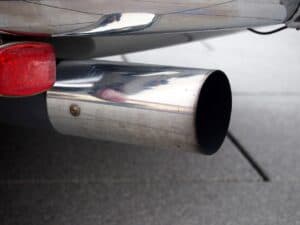Electric school buses benefit both the climate and students’ health
 2 Maret 2022
2 Maret 2022
Electric school buses are finally rolling out and are directly impacting the air quality children breathe each day. Recently, there have been several announcements regarding EV school buses. Some of these include studies backing their benefits and orders deploying hundreds of them across the nation.
For example, one study has found that current school buses that run on diesel emit high levels of greenhouse gases. These effects can be mitigated by using electric fleets, which have many benefits, including helping the environment and improving people’s health.
Current trends show that the number of school buses in the U.S. has increased since 2012. About 40,000 buses were purchased in 2019. In other countries like Canada, only 4,607 buses were registered in the same year.
Replacing diesel fuel school buses for all-electric versions will eliminate 5 million tons of U.S. carbon emissions each year. The shift would be a crucial step forward, especially for kids with asthma.
Furthermore, school buses are mostly in transit for short distances and only a few hours of the day. The main barriers to all-electric vehicles — limited miles and charging infrastructure — remain negated.
Electric buses tend to be pricey, but companies like MTE (Midwest Transit Equipment) are changing that. MTE is one of the largest school bus dealerships in the U.S. The company plans to convert thousands of school buses with electric-powered batteries over the next five years.
In addition to these replacements, MTE will provide these newly converted e-buses at a lower cost than a brand new EV school bus.
The impacts of diesel fuel buses
Children have faster breathing rates than adults as their lungs are not fully developed yet. Diesel exhaust is a primary source for student illness and school absenteeism. It’s also linked to asthma, chronic respiratory diseases and premature death.

As buses sit in traffic, residents in surrounding neighborhoods, bus drivers and maintenance workers are all affected by the poisonous gases. That is why transitioning to electric vehicles is important.
Currently, there are 50,263 electric charging stations in the U.S. According to Statista, the U.K. has 10,616 locations, and Japan’s charging points decreased to 29,200 in 2020.
While the number of charging stations doesn’t seem to be a problem, there aren’t enough electric school buses to make up for it just yet. However, momentum is almost in full swing.
President Joe Biden’s infrastructure bill allocates $5 billion to fund electric and zero-emissions school buses over the next five years. The ultimate goal would be to power the system with 100% renewable energy to get to zero emissions.
The push for E-buses
Certain parts of the country are also making their rounds to push for the e-bus movement. School officials, parents, students and policymakers are advocating this goal.
The New York City Council passed a bill mandating all EV school buses by 2035. Meanwhile, a high school cross country team in Phoenix partnered with their coach and an organization to purchase an electric bus. In Miami, one student pushed her county’s school board to pass a district plan, replacing dozens of diesel buses with electric ones.
It’s not only the U.S. pushing to add more EV school buses. Recently, Lion Electric announced its deployment of a few dozen buses in Canada. This fleet would enlarge the current dozen, operating since early 2021. Lion also says it will provide an equal amount of charging stations to the local community.
The support for the transition to zero-emission buses seems to be overwhelming. Many parents are concerned about the pollution’s impact on their children. For example, there are 480,000 school buses in the U.S., and only a small percentage of them are low-emission or electric. The amount of pollution for school-aged children puts them at risk for tons of health problems.
Moreover, climate-fueled events such as extreme heat and wildfires also harm human health. As these become more common today, parents call on their elected officials to take action.
The change for all school buses to be electric is a practical solution that will have an immediate payoff in the future. As the air quality improves, so will children’s well-being. The push to reduce diesel emissions is no longer a thought. Steps are being taken to make the world a better place.
School districts that replace diesel buses will see many benefits. Electric buses require less maintenance than standard models, and fuel costs will be negated. Despite the initial expenses electric buses carry, many schools are focusing on becoming greener and making the world a better place to live.
The post Electric school buses benefit both the climate and students’ health appeared first on Sustainability Times.
